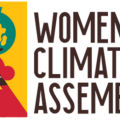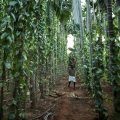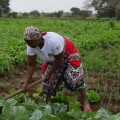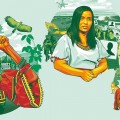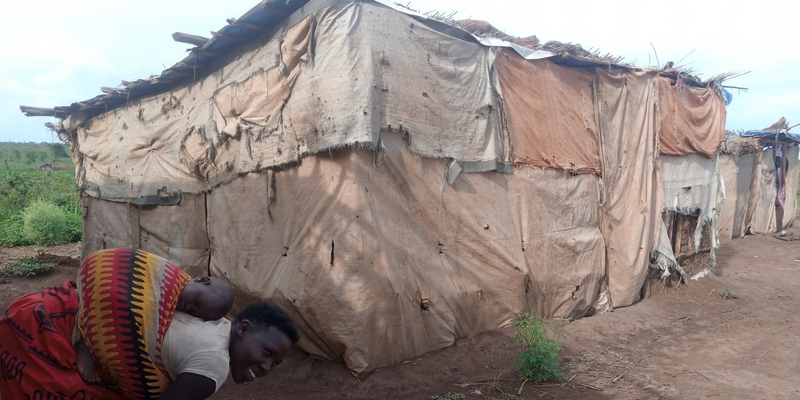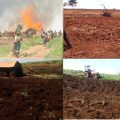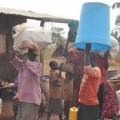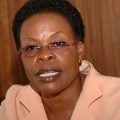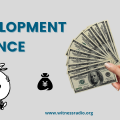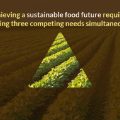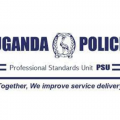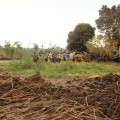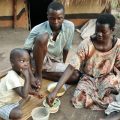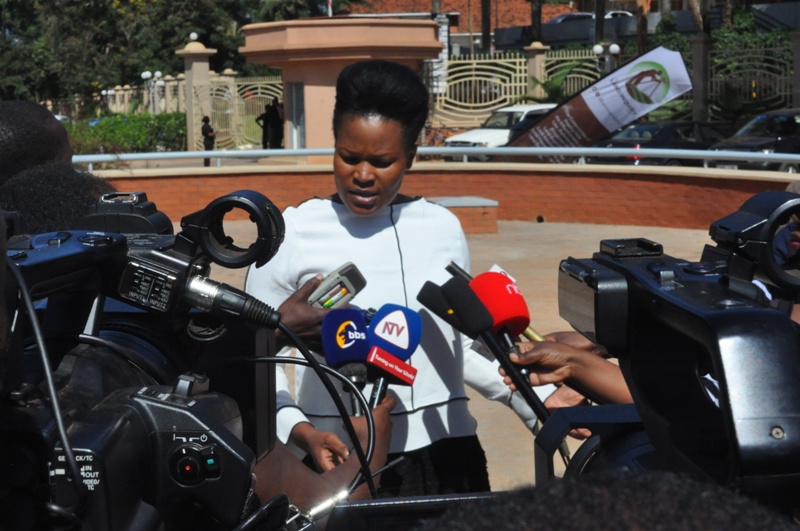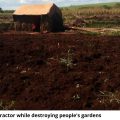Witness Radio – Uganda joins the undersigned organizations, to express our deep concern at the aims and assumptions that appear to underlie the 2nd Dakar Summit on Agriculture and Agribusiness(Dakar II), being held from in Senegal.
The stated aim of the summit, organized by the African Development Bank (AfDB) together with the government of Senegal, is to raise agricultural productivity and support infrastructure and “climate-smart” agricultural systems using private sector investments in order to “help turn Africa into a breadbasket for the world.” The organizers of the summit claim that this will require between $28.5 billion and $36.6 billion annually.
However, the underlying structural problem with food insecurity in Africa is not simply one of insufficient land being cultivated in Africa, or of an overall shortage of food, as stated by AfDB.
Over the last ten years enormous swathes of land across the continent of Africa have been grabbed by agribusiness interests, resulting in oil palm plantations that have razed forests in Liberia and Sao Tomé, and waste from sugarcane plantations destroying the environment in Nigeria. The Land Matrix estimates that 50 per cent of land investment deals in Africa have taken place on land used by small scale farmers, mostly in Ethiopia, Senegal, Ghana, Mozambique, Sierra Leone, Tanzania, and Uganda.
The Summit’s assertion that “climate smart agriculture” (CSA) is required to address food insecurity is also not supported by the evidence. As explained by GRAIN, CSA includes practices which claim to reduce greenhouse gases, but avoids addressing the root causes of the climate crisis including the industrial food system: for instance, CSA can include spraying a field with toxic herbicides as a way to avoid plowing the soil and releasing carbon into the atmosphere. It can also include harmful practices such as turning land into soybean plantations which can be labeled as “climate smart” since soybeans do not require nitrogen fertilizers. GRAIN explains how CSA was devised by agribusiness corporations to counter growing support for agroecology in international forums on agriculture and climate change, with the term propelled into the mainstream by fertilizer companies, through a lobbying campaign and a global alliance of corporations, governments and multilateral agencies, such as the World Bank and FAO. Today, CSA can include a range of destructive practices such as large-scale monoculture, factory farming, or GMOs.
Among the CSA technologies promoted at the Dakar 2 summit include climate smart water efficient maize, which is being pushed by the African Development Bank’s Technologies for African Agricultural Transformation (TAAT)’s Maize Compact. Such technologies include the Water Efficient Maize for Africa (WEMA). According to the bank, drought tolerant maize helped farmers in Zimbabwe, Malawi, and Zambia to survive the drought in 2019. However, the African Centre for Biodiversity, ACB, has revealed how the WEMA project, which has been shrouded in secrecy, aims to build a private-sector seed industry in Africa and to spread the adoption of hybrid maize varieties. Both Monsanto and BASF have donated to the WEMA project. ACB explains how WEMA is being used to smooth the path toward the introduction of GMOs in African countries and to weaken biosafety regulations for instance in Tanzania and Mozambique. The Dakar II summit is also promoting heat tolerant wheat varieties in Sudan and in Ethiopia in partnership with seed companies.
While climate change is a serious threat to farmers in Africa, with 70 per cent of farmers depending on rain-fed farming, CSA approaches, including WEMA and drought tolerant maize varieties, are not the solution. Not only does CSA strengthen the very agribusiness and seed companies responsible for destroying farmers’ livelihoods and the agricultural biodiversity which is needed for robust food systems, but it also contributes to, rather than solves, the climate crisis by strengthening the industrial food system. According to GRAIN and the Institute for Agriculture and Trade Policy (IATP), the world’s five 8 largest meat and dairy corporations are responsible for an even greater volume of greenhouse gas emissions than oil companies like Exxon, Shell, or BP.
The Alliance for Food Sovereignty in Africa (AFSA) whose members include smallholder farmers, pastoralists, hunter-gatherers and indigenous people have explained how agroecological and indigenous practices are the right way forward for African farmers to survive the climate crisis.
We urge participants to the Dakar II Summit to i) consider ways of eliminating land-grabs from farmers, ii) reject CSA-based approaches that strengthen large seed and agribusiness companies and iii) support the organizing initiatives of African farmers and organizations who are fighting for food sovereignty and agroecology, and those who are fighting back against land grabbing by agribusiness and private investors.
Signed by:
The African Technology Assessment Platform (AfriTAP)
Terre à Vie, Burkina Faso
Collectif Citoyen pour l’agroécologie (CCAE) Burkina Faso
La Coalition pour la protection du patrimoine génétique africain (COPAGEN)
Health of Mother Earth Foundation (HOMEF) Nigeria
CESAO-AI, Burkina Faso
Institute for Research and Promotion of Alternatives in Development (IRPAD) Bamako, Mali
Environmental Rights Action/Friends of the Earth Earth Nigeria (ERA/FoEN)
The African Centre for Biodiversity (ACBio)
The ETC Group
Congo Basin Conservation Society (CBCS Network) DRC
Fédération agroécologique du Bénin (FAEB)
Zambia Alliance for Agroecology and Biodiversity (ZAAB)
Justiça Ambiental JA! Mozambique
Alliance for Food Sovereignty in Africa (AFSA)
Eco Defenders Network, Nigeria
Les Amis de la Terre, Togo
Conseil National de l’Agriculture Biologique (CNABio), Burkina Faso
Eastern and Southern Africa Small scale farmers Forum
Community Development Advocacy Foundation (CODAF)
Zero Waste Ambassadors (ZeWA)
Isoko Environment Monitoring Committee
Africa Center for Environment and Rural Development (ACERD)
Community Environmental Monitoring Committee
Community Forest Watch
Yasuni Association
Abotokio Agro Village Farmers Association, Abotokio, Nigeria
Worldwide opportunities on organic farms, Nigeria
African Union of Consumers, Ndjaména/Chad
International family of Catholic social justice organizations (CIDSE) (International)
Biowatch South Africa, Durban, South Africa
ReSCOPE Programme, Lusaka, Zambia
Biodiversity and Biosafety Association of Kenya (BIBA Kenya)
Bees Abroad UK
Réseau Africain pour le Droit à l’Alimentation au Togo (RAPDA-Togo)
BFA Food and Health Foundation
Student Environmental Assembly Nigeria (SEAN)
Host Community Network, Nigeria (HoCoN)
Corporate Accountability and Public Participation Africa (CAPPA)
The Young Environmental Network (TYEN)
Civil Society Agrarian Partnership (CSAP)
Committee on Vital Environmental Resources (COVER)
Women and Children Life Advancement initiative
Community Alliance for Global Justice/AGRA Watch
Urban-Rural Environmental Defenders (U-RED) Nigeria
Africa Europe Faith & Justice Network (AEFJN)
AFRICAN WOMEN COLLABORATIVE FOR HEALTHY FOOD SYSTEMS
African Women and Youth Environmental Initiative
SPEAK Nigeria
Network of Women in Agriculture Nigeria (NWIN)
Nous Sommes la Solution
Tanzania Alliance for Biodiversity (TABIO)
Eastern and Southern African Pastoralists Network (ESAPN)
Regional Schools and Colleges Permaculture Programme (ReSCOPE)
Kenya Peasants League
La Via Campesina Africa
Indigenous women and girls initiative
Food Sovereignty Ghana (FSG)
Youth for Environmental Sustainability and Development (YESD) Nigeria
Center for Food and Adequate Living Rights (CEFROHT) Uganda
Friends of Earth Africa (FoEA)
GRAIN
Centre for Minority Rights Development (CEMIRIDE), Kenya
Eco Index Agro Solutions Limited
World March of Women, South Africa
Women Collective Kenya
Foi et Justice, Cameroun
Confédération Paysanne du Faso, Burkina Faso
Société Civile Environnementale et Agro Rurale du Congo
Secrétariat Permanent des ONG (SPONG), Burkina Faso
Mouvement Africain pour les Droits Environnementaux dans la région de l’Est (MADEE), Burkina Faso
COASP Burkina, Burkina Faso
Fédération nationale des sociétés coopératives des Éleveurs du Burkina (SCOOP-CA/FEB), Burkina Faso
Diobass, Ecologie et Société/Plate forme du Burkina Faso
Urban-Rural Environmental Defenders (U-RED), Nigeria
Association Tunisienne de Permaculture, Tunisie
Association des Agriculteurs Sans Frontières, (AASF) Bukavu RDC
Association des femmes et enfants sans voix, (AFEV) RDC
Centre d’appui au développement et à la gestion de l’environnement (CADGE) RDC
Association pour la défense des droits des aides ménagères et domestiques (ADDAD) Burkina Faso
Les Jardins d’Hambe, Mali
COASP-Mali, Comité Ouest Africain des Semences Paysannes, Mali
Institut Panafricain pour la Citoyenneté, les consommateurs et le Développement (CICODEV), Sénégal
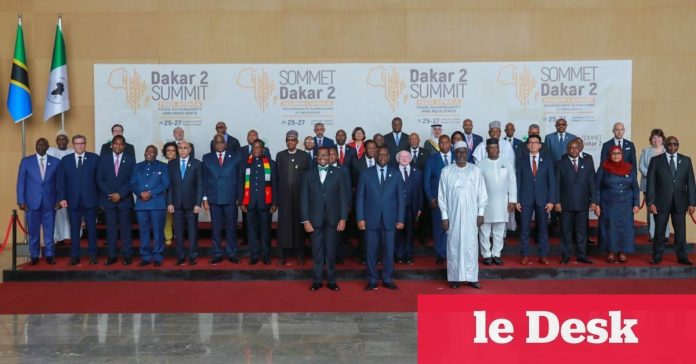

 NGO WORK2 weeks ago
NGO WORK2 weeks ago
 MEDIA FOR CHANGE NETWORK2 weeks ago
MEDIA FOR CHANGE NETWORK2 weeks ago
 MEDIA FOR CHANGE NETWORK2 weeks ago
MEDIA FOR CHANGE NETWORK2 weeks ago
 MEDIA FOR CHANGE NETWORK2 weeks ago
MEDIA FOR CHANGE NETWORK2 weeks ago
 MEDIA FOR CHANGE NETWORK2 weeks ago
MEDIA FOR CHANGE NETWORK2 weeks ago
 MEDIA FOR CHANGE NETWORK7 days ago
MEDIA FOR CHANGE NETWORK7 days ago
 MEDIA FOR CHANGE NETWORK7 days ago
MEDIA FOR CHANGE NETWORK7 days ago
 MEDIA FOR CHANGE NETWORK2 days ago
MEDIA FOR CHANGE NETWORK2 days ago
